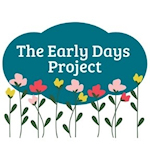The Early Days Project: parents’ experiences of the early days of bereavement and the support they receive from children’s hospices
SPRU research team
- Julia Hackett
- Bryony Beresford
External collaborators
- Dr Jan Aldridge, Martin House Children’s Hospice
Project summary
The ways parents are supported towards the end and after their child’s life can profoundly affect the grieving process. Within children’s hospices cold bedrooms, cooling blankets, and cuddle cots are provided to enable families to be close and have unrestricted access to their child in the early days after they have died. Such facilities are thought to support families in the initial stages of grief. However, there is wide variation in the ways children’s hospice offer such facilities and very little is known about parents’ experiences.
The first stage of the project is a survey all UK children’s hospices about the cold bedroom/cooling blanket/cuddle cot facilities they provide and practices around their use. The second, main, stage involves interviews with parents who have used these facilities - either in the hospice or at home - about their experiences of using these facilities and the early days of bereavement. Findings and their implications for practice will be relevant and useful for families, children’s hospices, specialist palliative care and other NHS services who are beginning to offer this provision, NHS England, and the research community.
Additional information
Funder
Duration
May 2018 - December 2020

.jpg)
